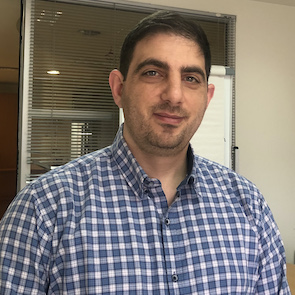Last week on CNN International’s “Connect the World,” host Becky Anderson brought in Sari Bashi of Human Rights Watch (“HRW”) to discuss Israel’s decision to close seven organizations due to their connections with the terrorist organization Popular Front for the Liberation of Palestine (“PFLP”).
There was one major problem.
At no point was it disclosed that Shawan Jabarin, the General Director of one of those organizations (Al Haq), also sits on HRW’s advisory committee for its Middle East and North Africa Division. This is highly relevant information for viewers to be able to properly assess the credibility of the allegations made by Ms. Bashi.
As the Society of Professional Journalists’ Code of Ethics explains, ethical journalists should: “[i]dentify sources clearly. The public is entitled to as much information as possible to judge the reliability and motivations of sources.”
This omission is particularly relevant given that Jabarin himself has been described by the Israeli High Court of Justice as a “Doctor Jekyll and Mister Hyde, acting some of the time as the CEO of a human rights organization, and at other times as an activist in a terror organization which has not shied away from murder and attempted murder…” Even Palestinian media has associated Jabarin with the PFLP.
Given the sweeping, unsupported allegations Bashi went on to make, this failure to disclose is particularly problematic. Bashi, notwithstanding the undisclosed conflict of interest, is allowed several minutes to weave together a narrative of an evil Israel clamping down on democracy.
Take for example how Bashi repeatedly alleges nefarious motives behind the Israeli actions. She accuses Israel of “trying to silence peaceful dissent” and “escalating a dangerous crackdown against Palestinian civil society under the guise of anti-terror…”
Is this all an underhanded game of going after “peaceful” critical organizations to silence criticism? Without having seen the classified evidence or read the minds of those involved in the investigations, one can only speculate. However, the enormous amount of publicly-available evidence collected by other civil society organizations like NGO Monitor strongly suggests there are some serious questions about the dozens of links between these “civil society” organizations and the PFLP. At no point does Anderson step in and ask Bashi about this evidence.

Ubai Al-Aboudi, the executive director of one of the designated organizations (Bisan), was a part of the PFLP terrorist cell that attempted a double suicide bombing and shooting operation in 2005. Also affiliated with another designated organization, the Union of Agricultural Work Committees, Aboudi was allegedly involved in another terror attack that killed a 17-year-old Israeli girl, Rina Schnerb, in 2019.
Similarly, on the topic of classified evidence, Bashi is left unchallenged as she applies standards to the Jewish state that don’t seem to comport with the standards applied elsewhere.
Israel is far from the only democratic country which may designate non-governmental organizations over their terrorist activities without publicly disclosing the evidence. So too can the United States and the United Kingdom, for example. As Matthew Levitt of the Washington Institute for Near East Policy explained last year: “The intelligence is unlikely to be made public, which is typical for the evidentiary documents used to support designations in the United States and elsewhere.”
Instead of asking these obvious questions, Anderson even doubles down on Bashi’s line of argument, stating, “[t]he United Nations says…they haven’t seen evidence to Israel’s claim.” Who at the UN? Why would their review matter? What obligation, or common practice, would lead to an expectation that Israel disclose such evidence to some unspecified actor at the UN? Is any other country expected to submit evidence regarding terrorist designations to the UN?
Instead, what is common elsewhere seems to be viewed as questionable only when done by Israel.
One need only peruse the U.S. Treasury Department’s nearly 2,000-page list of designated individuals and organizations, including many purported charities and “human rights” organizations that were registered in the United States (including those linked to Palestinian terrorist organizations).
How many times were these U.S. decisions – made under an executive order and many (if not all) without disclosing the underlying evidence – described as “a dangerous crackdown against civil society under the guise of anti-terror?” Were any serious journalists or “human rights” activists questioning why the U.S. government didn’t first prove its claims to the UN?
Given the undisclosed relationship between HRW and Jabarin, at the very least it would have been incumbent upon the host to ask pointed questions such as those raised above.
Instead, the very first question asked of Ms. Bashi was to describe “the extent of the damage” after Israel shut down the offices. From there on, it was softball after softball, teeing Ms. Bashi up for boilerplate responses with the obvious follow-up questions left unasked.
Between the failure to disclose the conflict of interest and the gentle treatment of Bashi and her sweeping claims, CNN International acted less like a legitimate media outlet focused on serious journalism and more like a public relations agency on behalf of the designated organizations.
CAMERA has contacted CNN and urged it to publicly clarify the relationship between Sari Bashi’s HRW and one of the organizations in question, Al Haq.
